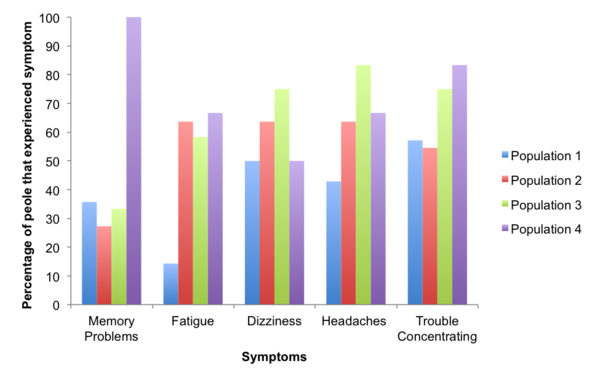The Impact of Age on Post-Concussive Symptoms: A Comparative Study of Symptoms Related and Not Related to the Default Mode Network
(1) West Linn High School, West Linn, Oregon
https://doi.org/10.59720/16-093
The Default Mode Network is a network of connected brain regions that are active when the brain is not focused on external tasks. Minor brain injuries, such as concussions, can affect this network and manifest symptoms. We measured the correlation between the symptoms people experienced after a concussion and their age at the time the concussion occurred. We hypothesized that some symptoms, including depression, anxiety, insomnia and other sleeping problems, have a higher correlation with age than other possible symptoms. Data were collected from 133 people who had experienced concussions, as well as data from 24 healthy controls. Investigation of healthy controls via regression analysis revealed no notable or significant patterns. In concussed individuals, the incidence of sleeping problems was not correlated with the maturity of the Default Mode Network; however, there was a higher percentage of people who had a concussion between the ages of 14–16 who experienced depression, anxiety, and insomnia, as compared to other age groups and symptoms. By comparing the regression analyses, we determined that the symptoms not related to the Default Mode Network were more linearly correlated with age than symptoms related to the Default Mode Network. This phenomenon is intriguing and deserving of further research.
This article has been tagged with: